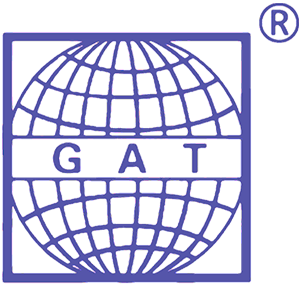COVID control measures optimized across China
China has recently optimized its COVID-19 control measures to minimize their impact on people's normal life and economic activities. The following are some new measures being taken in different localities across the country.

Closed-off management lifted
On Wednesday, the southern city of Guangzhou lifted closed management measures temporarily imposed on districts including Haizhu, Tianhe and Panyu.
In the hardest-hit Haizhu district, closed-off management had been in place in most parts of the district for half a month.
The city said it will identify high-risk areas in a more precise way, which in principle will be restricted to only residential compounds and building units.
Zhengzhou, capital of Henan province, lifted citywide closed management on Tuesday, ending a five-day "mobility management" period that brought the city to a standstill. Mobility restrictions are now only imposed in residential buildings deemed risky.
Chongqing, a city in Southwest China, is also easing epidemic measures in some non-infected communities as the city has curbed the fast rise of infections.
In Shijiazhuang, six districts including Qiaoxi, Chang'an and Yuhua started implementing differentiated epidemic control measures from Thursday to restore normal life and production.
Starting Thursday, buses and taxis are allowed to travel freely in Urumqi, capital of the Xinjiang Uygur autonomous region, as the city had "basically cleared" COVID cases at the community level. Previously, public transit vehicles were only allowed to operate within designated districts.

Mass testing reduced
Localities across the country have adopted more precise COVID testing measures.
After Guangzhou announced that certain groups such as homebound seniors, children and people working or studying from home will be no longer required to take part in nucleic acid screenings, similar practices have been applied in Beijing, Shenyang in Liaoning province, and Taiyuan of Shanxi province.
In Zhengzhou, low-risk areas no longer conduct mass testing. In Chongqing, local communities and neighborhoods without confirmed cases are exempt from mass testing.
Starting Friday, some shopping centers in Guangzhou that have resumed operations no longer require visitors to show a negative result of a COVID nucleic acid test, with only a green health code needed.
Chengdu, the capital of Southwest China's Sichuan province, also no longer requires residents to present a negative result of COVID test when taking public transport or entering public venues.

Precise contact tracing
According to the recently-announced 20 optimized COVID response measures, China will no longer identify secondary close contacts and identification of close contacts will be conducted in a more precise manner.
Following this principle, Guangzhou, Shenzhen and Chongqing have announced the screening of close contacts should not be expanded at will, and close contacts can only be confirmed based on precise epidemiological investigations, whereas "space-time companions" — a term describing people whose movement likely overlapped with confirmed patients — should not be identified as close contacts.

Home isolation considered
Many localities have started exploring home quarantine for the infected or close contacts.
In Guangzhou, self-isolation at home was greenlighted for close contacts if conditions allow. On Nov 25, an infected woman with a son suffering from depression was allowed to quarantine at home to better take care of her child.
In some residential communities in Beijing, infected seniors, pregnant women and babies are allowed to quarantine at home.
For instance, on Nov 27, a two-year-old boy who contracted the virus was allowed to stay home for quarantine after neighbors agreed to it.
Chongqing said on Wednesday close contacts with special circumstances, such as people with severe preexisting conditions, seniors and pregnant or breastfeeding women, could stay home for quarantine instead of going to centralized facilities.

Less interruptions for medical services
Beijing authorities on Tuesday told hospitals to avoid closing important departments, such as emergency and maternity departments, even if they have been hit by COVID-19.
Hospitals must not turn down hemodialysis patients, pregnant women, children and patients seeking radiotherapy as first aid if they fail to present nucleic acid test results, according to the city's health commission.
The city also banned barricading building gates and residential complex entries in high-risk areas, demanding passage remains clear for medical transportation, emergency escape and rescue.
Under optimized its COVID-19 control measures, our intelligent disinfection tunnel, smart disinfection gate is still in good protection for poeple, welcome to contact us for more equipment information: liny@sanitizertunnel.com.
